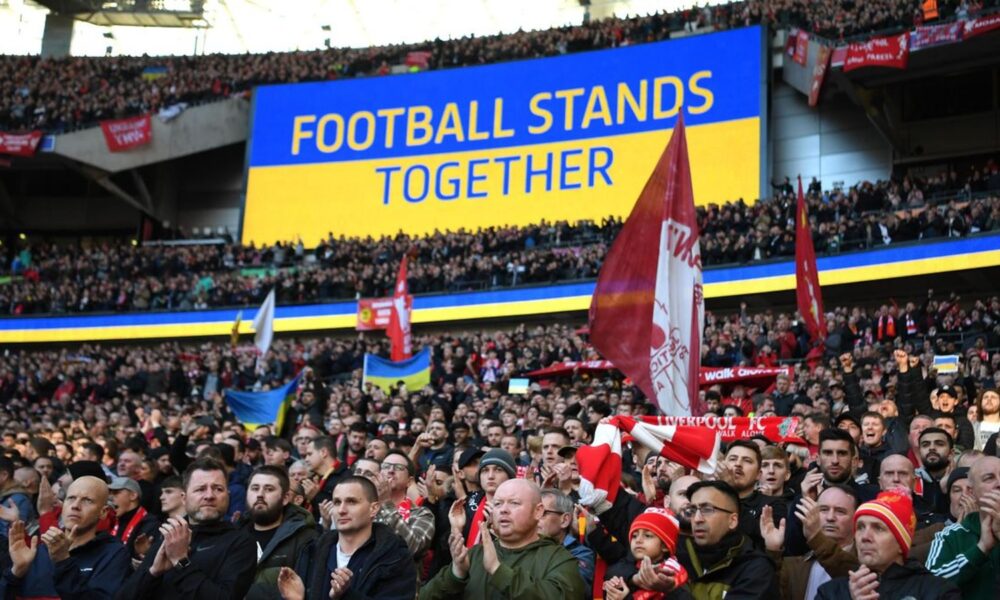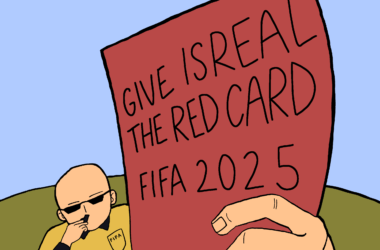On Feb. 25, the Fédération Internationale de l’Automobile (FIA), the governing agency of Formula 1, announced its decision to cancel the Russian Grand Prix. The decision came after concern from both stakeholders and drivers following the Russian invasion of Ukraine. The FIA also announced that Russian and Belarusian drivers would only be allowed to compete under a neutral flag, while Russian and Belarusian members of FIA commissions would have to temporarily step down from their positions.
Formula 1’s response to Russia’s invasion of Ukraine is not an isolated case, but rather a reflection of a broader movement observed across the sports world. A number of international organizations either cancelled events to be hosted in Russia or prohibited Russian and Belarusian athletes from competing. For example, FIFA and UEFA have announced that they were suspending all Russian international and club teams, preventing them from playing in the 2022 World Cup, which Russia hosted in 2018. The International Volleyball Federation also cancelled Russia’s hosting of the men’s 2022 Volleyball World Championship.
This universal condemnation of Russia’s war crimes by the sports world is honourable. It reflects a willingness to publicly oppose the Russian government, and it demonstrates to fans across the world that there are tangible, even financial, consequences when a state violates human rights. From this, a new question arises: Why is the sports world denouncing Russia’s actions while they overlook human rights abuses in other countries?
The sports world’s complicity in human rights violations are not only errors of the past. On the contrary, sports organizations often ignore the atrocities of various states to maintain lucrative contracts. FIFA is set to hold the World Cup in Qatar, despite numerous reports of human rights abuses linked to the construction of both the arenas and stands needed to host the tournament. Migrant workers have reported working without pay, having their passports stolen by officers, and being denied the right to leave the premises. Noah Edmunds, a U2 student studying political science and an avid soccer fan, told The McGill Tribune that he believes that FIFA’s decision to host the World Cup in Qatar is motivated by financial reasons only.
“I think that by holding the World Cup in Qatar, FIFA is blatantly ignoring the signs that Qatar has a poor human rights record,” Edmunds said. “I think that there are a lot of countries that are more appropriate to host the World Cup [….] I think that this is an attempt by both parties to increase their profits. If FIFA really cared to promote a fair and equal society for the game of football, it would be wise to avoid these […] countries.”
It is crucial to underline that FIFA is not only actively supporting these labour abuses but is also creating a demand for it. FIFA’s lack of concern truly shows that in the world of sports, money trumps morality.
Another recent case of blatant disregard for human rights has been the 2022 Winter Olympics in Beijing. The International Olympic Committee (IOC) maintained the location of the event, despite the country’s ongoing genocide targeting the Uyghur Muslim population. The genocide has been publicly recognized by countries including the U.S., Canada, and France. Despite global knowledge of the horrors happening in Xinjiang at the hands of the Chinese government, the Winter Olympics carried on. Elliott Rozental, U0 Engineering, believes that the IOC’s refusal to acknowledge the gravity of China’s actions makes them complicit in human rights abuses.
“I think we should stop holding the biggest sports competition in countries that violate human rights. I think that doing nothing is like allowing these acts,” Rozental said. “I agree that it may not stop them directly, but it is something we have the power to do and it’s already a first step toward progress. I think that the organizers and leaders of sport events like the Olympics should stop turning a blind eye to their horrible acts, and sanction the countries at fault. ”
Similarly, the FIA was one of the first organizations to denounce Russia’s actions and remove the Russian Grand Prix. Yet, Western sports organizations seem to only be concerned about human rights violations when white or European people are suffering, while simultaneously exploiting what value they can from Middle Eastern countries and ignoring the abuses faced by the population.
The Formula 1 calendar routinely hosts races in countries whose governments have perpetrated human rights abuses against their own citizens, such as Bahrain and Qatar. However, what is considered a human rights violation in one country, such as suppression of freedom, is often observed across other countries without particular concern. For example, the U.S. failed to respect its domestic human rights agenda, but there has been no controversy regarding their hosting of the Austin Grand Prix. The U.S. also backs the Saudi-led coalition that has killed hundreds of thousands of Yemeni civilians—and the FIA continues to host races in both countries.
The FIA’s lack of concern for some of these atrocities demonstrates their hypocrisy: They only seem to care about this issue when it benefits them. Juliette Barlier, U1 Arts, explained how the publicity surrounding Formula 1 is almost always only positive.
“In regards to Formula 1, I’ve only ever heard good things about it,” Barlier said. “But the fact that I have no idea that it’s being held in countries with very serious human rights violations just shows how little it’s talked about and how much these violations are covered up, while the sport is being praised.”
The sports world’s recent sanctions against Russia have completely upset the narrative regarding the usual response to questions of human rights in sports. A widely accepted take among stakeholders in pro sports is that sports are for entertainment, not politics. Proponents of this view often argue that sports organizations should not be arbiters of justice and that it is not their duty to punish human rights violations. Some also say that expecting organizations to make decisions of this magnitude reflects a Manichean worldview, whereby all actions are labelled as either “good” or “bad.”
However, the lightning speed with which sports organizations worldwide have sanctioned Russia is indicative that there is a possibility for change. Organizations have shown that they can impart a judgment on what is right and what is wrong. It is now of crucial importance that sports fans look to the world’s reaction to Russia to continue advocating for better attention to human rights in sports.
When sports organizations publicly make a profit by condoning abuse in the countries where they choose to hold events, they are telling their fans that they prioritize money over the lives and freedoms of others. Fans should also hold themselves accountable—people should not have their fundamental human rights violated just for a fan to see their country win the World Cup. It may be too hopeful to expect professional sports to change entirely, but the worldwide reaction to the Russian war shows that it can be done.









